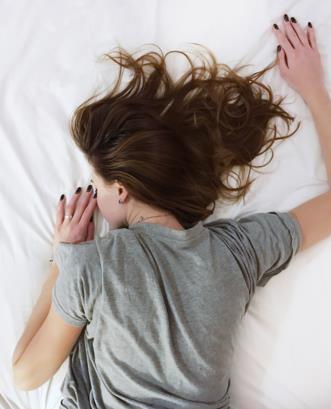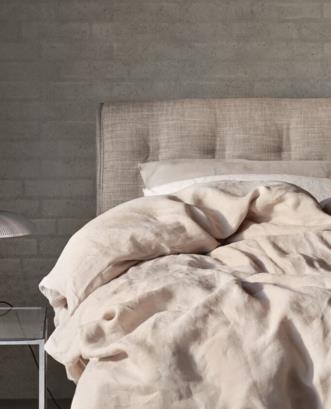
How to Hydrate for Quality Sleep
This is an excerpt from Life, Awakened – a series of videos and articles that promote harnessing the power of sleep for those in pursuit of an active, healthy lifestyle.
Along with exercise and good nutritional habits, experts agree that sleep is equally fundamental to an athlete’s health and performance. However, studies show that in addition to factors such as room temperature and light from electronics, hydration also plays a role when it comes to obtaining restorative shut-eye. According to the National Sleep Foundation, a lack of fluids can impair sleep, causing you to feel sluggish and irritable during the day.
“Even a slight level of dehydration will make you sleep more lightly,” adds Chris Winter, M.D., a sleep specialist based in Charlottesville, Virginia. Here, he weighs in on an ideal hydration timeline.
![]()
1: DRINK A GLASS OF WATER AS SOON AS YOU WAKE UP
Through respiration we lose a significant amount of water when we sleep, explains Winter, who suggests reaching for a glass of cold or room temperature water first thing in the morning. “Your body has to use more effort to warm up the water to the body's temperature, which helps to boost your metabolism,” he says. For extra energy, try adding a squeeze of lemon or an immunity-boosting tincture such as echinacea.
2: WAIT TWO TO THREE HOURS AFTER WAKING UP TO HAVE COFFEE
Winter advises holding off on the caffeine until after your morning workout, or at least a few hours after you wake up. It acts as a diuretic, and since you’re already waking up having lost fluids, it’s best to start the day rehydrating with water, he says. “Make sure you’re hydrating with water before and during your workout,” he adds. Then you can sip on your morning roast and opt for a lighter one, which is higher in antioxidants. “I like to make what I call Viking coffee after a HIIT workout,” says New York City-based model and recipe developer Silja Danielsen. “It’s prepared with collagen and cardamom, a spice that aids in digestion.” “Sleep experts recommend not drinking caffeinated beverages well before bedtime, since the stimulant can negatively affect sleep patterns for up to 12 hours.”
3: DRINK WATER WHEN YOU EAT
It’s important to consume water at regular intervals, but especially with meals. Research shows that doing so aids digestion and helps your body to absorb nutrients. Throughout the day, focus on foods like Brazil nuts and omega 3-rich fish, which contain nutrients such as selenium and magnesium that help to promote sleep.
4: TRY A GOLDEN LATTE IN THE AFTERNOON
After lunch, opt for a caffeine-free beverage since the substance can linger in your body for up to six hours and make it harder to wind down. Instead, try hydrating with this vegan recipe. “I like to have this drink in the afternoon or early evening, because it gives me energy but still allows me to fall asleep,” says Danielsen. This is a great choice since it’s made with turmeric, an anti-inflammatory spice that can aid with muscle regeneration. Moreover, “Turmeric can help bring down your body temperature and help you to fall asleep more easily,” points out Winter.
5: HAVE A GLASS OF WATER RIGHT BEFORE BED
Leg cramps due to dehydration can disturb your sleep, which is why drinking fluids before going to bed is a good idea. It’s a misconception that you’ll wake up and need to go to the bathroom if you hydrate before bed, adds Winter. “Unless you have a bladder condition, in the majority of cases you will wake up from an external stimuli such as a room that’s too humid. Then, because you’re already up, you feel the need to use the bathroom.”
For the golden milk recipe click here
Optimal health is an equilateral triangle of fitness, nutrition, and sleep. Furthermore, DUXIANA has partnered to bring you a series of articles which can help you to prioritize this triangle and optimize your performance as a result. Read all of the articles at Furthermore here and prepare for an awakening.










